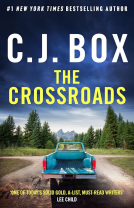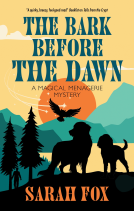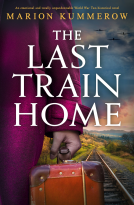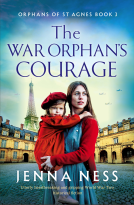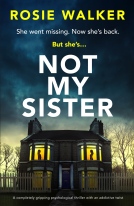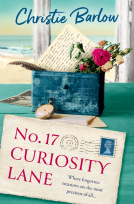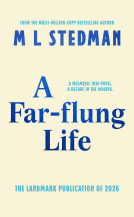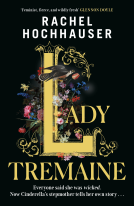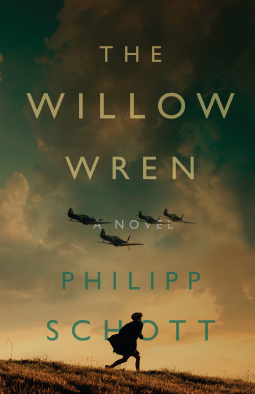
The Willow Wren
A Novel
by Philipp Schott
This title was previously available on NetGalley and is now archived.
Send NetGalley books directly to your Kindle or Kindle app
1
To read on a Kindle or Kindle app, please add kindle@netgalley.com as an approved email address to receive files in your Amazon account. Click here for step-by-step instructions.
2
Also find your Kindle email address within your Amazon account, and enter it here.
Pub Date 23 Mar 2021 | Archive Date 1 Apr 2021
Talking about this book? Use #TheWillowWren #NetGalley. More hashtag tips!
Description
Ludwig is an odd and introverted child, growing up in Hitler’s Germany. While Ludwig’s father, Wilhelm, is a senior Nazi and a true believer, Ludwig escapes the unfolding catastrophe by withdrawing into nature and books. Eventually, when the Allied bombing campaign intensifies, Ludwig is sent to a Hitler Youth camp, where his oddness makes him a target for bullying.
As the war turns against Germany, the Hitler Youth camp becomes ever more severe and militaristic, and the atmosphere spirals towards chaos. After the Nazis abandon the camp, Ludwig returns home, and his father is presumed dead. With Ludwig’s mother descending into depression, the 11-year-old bears increasing responsibility for the survival of the family as starvation sets in under Russian occupation. Soon, it will be impossible to leave the Russian zone, so Ludwig decides that he must rally his despondent mother and lead her and his three younger siblings in an escape attempt to the west.
Based on a true story, The Willow Wren is a unique, touching exploration of extremism, resilience, and the triumph of the small.
Available Editions
| EDITION | Other Format |
| ISBN | 9781770415737 |
| PRICE | $18.95 (USD) |
Average rating from 40 members
Featured Reviews
Pour yourself a glass of chilled Goldener Oktober, sit back and let Philipp Schott’s prose in ‘The Willow Wren’ bring to light his grandfather’s experience through the rise and fall of Nazi Germany. This easy reading and wonderfully penned biography-like account is to be published March 23, 2020.
Ludwig Schott, an odd and introverted child, grew up knowing his father was a lawyer by day and a member of Hitler’s Sturmabteilung (Brownshirts) by night. Although he wasn’t aware of what his father did for the party, he knew that his father was extremely devoted to the cause. Ludwig’s mother, a wonderful counterbalance to her husband's extremism, often reminded him that he was born on a Sunday and therefore, was given the gift of understanding the language of birds. It’s this realization as well as his memory of the Grimm’s fairytale of The Fence King that enable Ludwig to escape into surrounding nature as a method of survival. His whole world changes on the day of his 10th birthday, December 4, 1943, as that was the day he was supposed to spend with his father, but the 442 RAF bombers with 1300 tons of explosive ordinance had other plans for Leipzig. Ludwig and his brother are shipped off to join the DJV, German Youngsters in Hitler Youth Camp, while his younger siblings are sent to an aunt for safekeeping. Ludwig recounts his experiences living and learning within the camp, what happened when the Americans liberated their city, and an insight into what it was like living under a Soviet ration system.
You’ll feel like you are reading your grandpa’s journal because Schott has a wonderful way of enlightening his readers by drawing them into the story through narrating unintrusive diary entries. He shows how the extremism of the Nazi party affected people, how resilience was a necessary trait to acquire, and how resourcefulness leads to triumph for the Schott family during World War II.
Thank you to Philipp Schott, ECW Press and Netgalley for this advance copy in exchange for an honest review.
 Reviewer 492564
Reviewer 492564
A quiet and yet stunning memoir-by-proxy of a boy’s life in Nazi Germany and the aftermath there of WWII. Ludwig loves the outdoors, spending hours identifying birds and plants. But as the war nears its end and his home in Leipzig is bombed, he and his older brother are sent to a Hitler Youth camp, where conditions range from harsh to deadly. His brother is sent to the front and other boys are trained to serve in tank units despite their youth. After the Soviet army arrives and sends the boys to relatives, Ludwig and his family try to resume some kind of normal life, but food shortages and the high death tolls of the war make their survival nearly impossible. Beautifully written by Ludwig’s grandson based on his grandfather’s memories, this book chronicles a little-discussed aspects of the war and its toll on non-Nazi civilian adults and children.
 Reviewer 741563
Reviewer 741563
I absolutely adored this book. I enjoyed the child’s prospective of what it was like growing up as German child during WW2 and more so, his innocent opinions and feelings of what was going on around him. His views were interesting given that his father’s views were that of a Nazi and his mother, a Nazi’s wife, had her own views and opinions.
As soon as I started reading the book, I could not put it down. It was even better that this book was written by Philipp Schott, the son of Ludwig Schott, the young boy in the book.
 Carolyn S, Reviewer
Carolyn S, Reviewer
Philipp Schott has crafted a wonderful novel based on the recollections of his father and his family of growing up in Germany before, during and after WW2. Philipp's father Ludwig was born in 1934 in Leipzig where his father Wilhelm was a lawyer and a member of the Nazi party. The second of six children Ludwig was a small, skinny boy, more interested in reading and nature than sport. He loved the books of Karl May that told the tale of the young Apache chief Winnetou and the American West. A favourite Grimms fairytale was that of the willow wren, a small, quiet bird that outsmarted all the others and his favourite pastime was to escape to the woods where he could soak up the tranquility and listen to the songs of the birds.
Through accounts told to him by his father, mother and siblings, Philipp has put together the story of the family's survival through the war and under occupation by Russia. Ludwig's father Wilhelm would eventually become the local Nazi group leader (Ortsgruppenleiter) for the Leipzig area, although his mother Sarah would remain resolutely against the party and anti-war. The war would remain somewhat remote for young Ludwig until 1941 when British bombing of German cities resulted in blackouts and rationing and the escalating bombing of Leipzig in 1943 would eventually lead to separation of the family with Ludwig and his older brother Theodor sent to a boy's evacuation camp near Colditz. Ludwig and Theodor's accounts of life in the militaristic camp were pretty grim, especially for the small and bookish Ludwig, and would culminate with Theodor being sent to fight at the front at the age of fifteen.
The description of the family's plight after the war also makes for grim reading. With her husband Wilhelm presumed dead, Sarah and the children settle in Colditz, now in the zone occupied by Russia and experience real hardship and near starvation for three years, while Ludwig dreams of convincing his mother and siblings to escape to the west.
Philipp Schott is a marvellous story teller and writer and this was a fascinating account of what it was like to be a German child, and son of a Nazi Party leader during WW2. It's a tale of the courage, resourcefulness and resilience of ordinary people. The descriptions of post war deprivation in what would become East Germany were no doubt typical of what the rest of the population experienced at the time, but were definitely eye-opening.
 Margaret P, Bookseller
Margaret P, Bookseller
Schott was born in Germany, but emigrated to Canada while still a baby. He is a veterinarian and his only previous book is entitles "The Accidental Veterinarian". This novel is an historical fiction and is based on the memories of his grandfather Ludwig Schott. Ludwig was a child living in Germany during World War II and the book recounts his memories of both the war years and the few years after the war under the rule of communist Russia. His dad was a member of the Nazi party and he was not home much. He lived with his mom, older brother and younger siblings. Ludwig loves being in the woods watching the birds, which does not help in making friends. The story details the downfall of the family from living in relative privilege through harder and harder times as the war progresses and is no longer something happening far away. He is eventually sent to a Hitler Youth Camp, where life gets even harder. After Germany is defeated, the deprivation continues and every day is a struggle for survival. This is a fabulous read for fans of the genre and although classified as fiction, much of it is based on actual events. I found it to be very entertaining and educational.
 Christine T, Reviewer
Christine T, Reviewer
Wow, what a magnificent novel this is! All of you (like me) who are beginning to tire of WWII stories, dust yourselves off and make room for this one. This is a “historical fiction memoir,” if you will. The author, Philipp Schott, is the son of the real-life protagonist, Ludwig Schott. The frame of the story is Ludwig’s, the details are Philipp’s. Ludwig narrates all the way up to the epilogue. Philipp gives us the last chapter/epilogue.
This is unlike any other WWII book I have read, and I have read a lot of them. The story takes place from the mid 1930s through 1949. Ludwig was born in 1934 and was only 15 at the end of the book. Thus, we see the buildup, the actual war years, and the difficult aftermath through the eyes of an East German boy. His father, Wilhelm, is a hard-core Nazi and a philanderer. His mother, Luise, does not fall for Nazi propaganda and is more concerned about keeping her five children safe. Ludwig is an introverted soul, most comfortable in the forest with the birds (especially the wrens), animals, and trees. But times are bad; suffering is paramount. Ludwig must grow up fast. From his pre-teen years he is forced to skip childhood and begin making adult decisions and doing what he can to help his family and himself survive. Through the eyes of a young boy we see it all: The inevitable removal of nine-year-old Ludwig and his 13 year-old brother Theodur from their home and their forced participation in the militaristic Hitler Youth camp. The constant threat of death—by war or by starvation. The bullying. The absent father. The mother’s struggles. The challenges just to survive. As the war finally winds down, many of these challenges remain as the family, sans father, lives under Russian rule. Ultimately, at age 14, Ludwig realizes the only possible way to freedom and a good life lies within the dangerous attempt to escape from East Germany to the West.
It is a real eye opener to read a war novel through perspective of a young German. We see that the Germans during that time were just like us. Some were gaslighted by Nazi propaganda (Hitler actually won a democratic election) and fought for the rise of fascism. Others could see clearly and were frightened by what they could see happening. Countryman was pitted against countryman. What a jolt to see the rise of fascism from a situation very similar to what we have seen in America the last few years. Thankfully, so far, we have remained out of a world (and civil) war, but we are not out of the woods yet. When I first began reading WWII books, I wondered why the people did not rise up against the fascist leaders. Now I understand much better why they did not. A charismatic (in some eyes) leader, gaslighting and fake news.
Despite the horrors of the war, it was so inspiring to see how young Ludwig handled the overwhelming odds of all that confronted him. He was courageous, resourceful, resilient, and never gave up. You know that question about if you could have dinner with 5 people who would they be? Ludwig would be one of my guests. He was a phenomenal young man, and I’m glad his brother made sure he would not be forgotten by writing his story. I highly recommend The Willow Wren for all readers of historical fiction.
Many thanks to Net Galley, Alex and the ECW Press, and Philipp Schott for the gift of an ARC. Opinions stated are mine alone and are not biased in any way.


